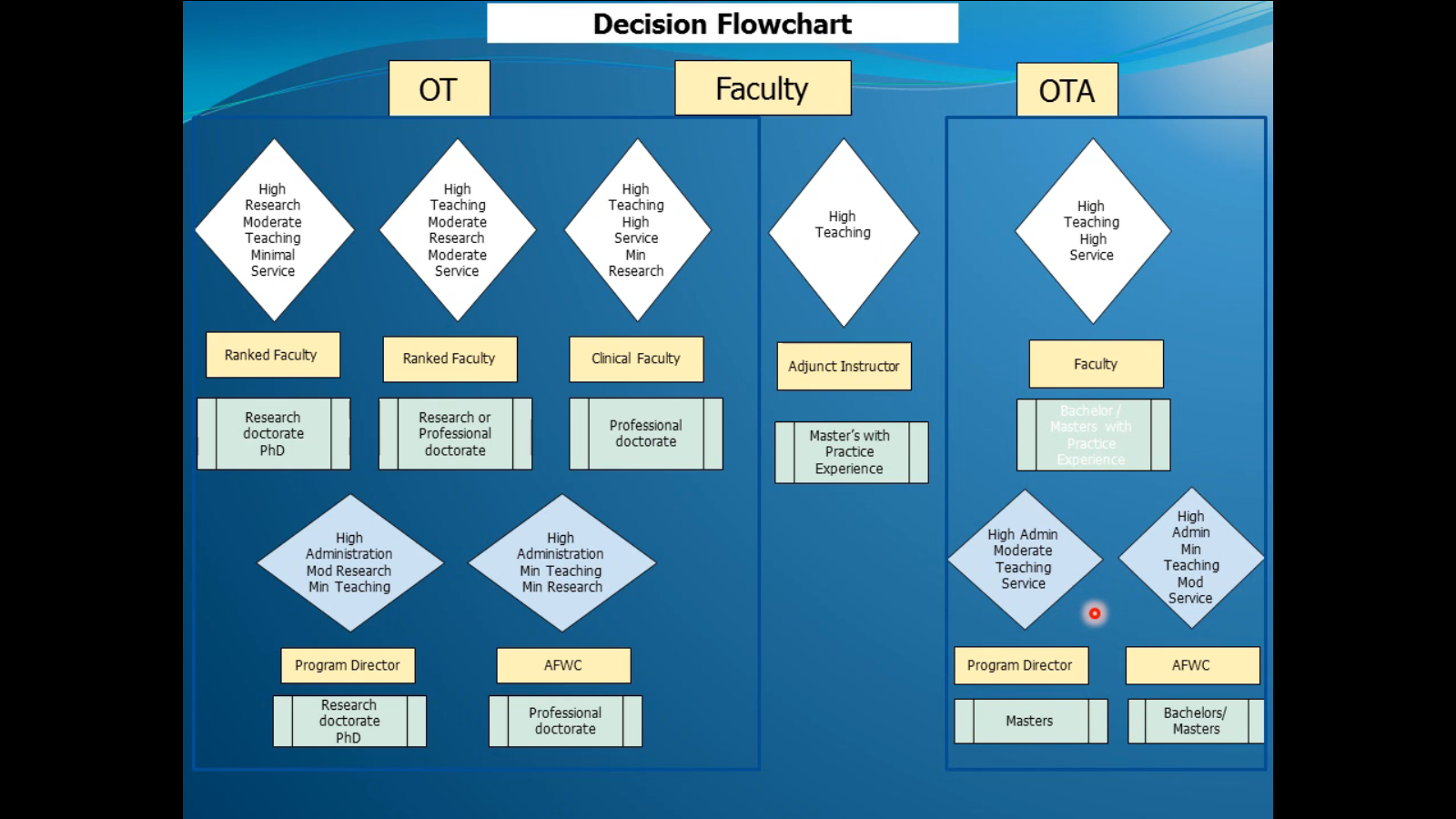You will not be able to teach with a OTD at a regular university; they will certainly prefer a PhD in Occupational Therapy.
Just to clarify, what is considered a regular university? I want to make sure we are talking about the same thing.
MOT4ME said:
There may be outliers, like the professors you have witnessed, but I do think most faculties prefer PhDs to OTDs. Just a hunch, I could be wrong.
I was interested in what you were saying, so I went ahead and did some research into the faculty at various schools. Obviously I did not look at the faculty list at every school that has an OT program, because that would have taken a really long time, but I did look through the faculty list at 15* different schools. I just randomly picked the schools I looked at, with the only exception begin that I specifically looked at Wash U, Boston and USC because they were ranked high by US News and World Report and I was curious if their lists would be different because of their ranking.
What I found out was that of the 15 schools, 9 of them had one or more professors, assistant professors or adjunct professors with an OTD. (I did not record which position the OTDs held, so I don't have that information.) At many of the schools, there was only one OTD, however, at others (Alabama State University, Washington University in St. Louis, University of Illinois Chicago and USC) as many as 1/3 to 1/2 of the faculty had an OTD.
Based on my research, it honestly seems to depend on the school whether or not they prefer PhDs to OTD. Some schools obviously do. Some may prefer a PhD but hire faculty with an OTD. Other schools hire equally. PhDs were more common than OTDs, but I think considering over half the schools had an OTD on their faculty list, it is safe to say you can go into academia with an OTD. Just keep in mind, this information is solely based on the currently faculty, which may or may not represent actual preferences.
Also just wanted to remind everyone that an OTD and a PhD are not the only two degrees that can get you into teaching at a university level in OT departments.
ExceptionalSea said:
that's not to say that there aren't faculty out there with OTDs and not PhDs. but as OT eventually moves to the OTD for entry-level, it stand to reason that if you'd want to get into academia/research, a PhD would help you out more.
ExceptionalSea, I agree with you, but disagree with you at the same time. The reality is that at many of the universities I looked through, I saw faculty that only held a master's degree. For example, Colorado State has 5 faculty that only hold a master's degree. Columbia University has 2 faculty with only a master's degree. Texas Women's University has 8 faculty. I would guess people that only have a master's might be slightly less competitive job applicants due to only holding a master's degree, but that obviously did not keep them from getting a job... so I imagine the same would hold true for people getting an OTD if the profession does someday move in that direction.
*In case you are curious, the schools I looked at were: Elizabethtown, Alabama State University, Samuel Merritt University, University of Utah, Pacific University, Rush University, Colorado State University, Columbia University (only did “faculty” because not all information was available for “adjunct course directors/faculty” and “clinical instructors”), Towson University, University of Illinois Chicago, University of Pittsburg, Texas Women's University (all campuses), USC, Boston University, Washington University in St. Louis.
[Also just wanted to add a disclaimer that I did this quickly, so it is quite possible I could be off a little in either direction.]


